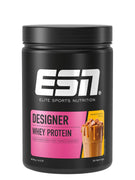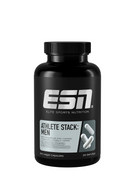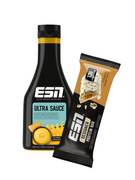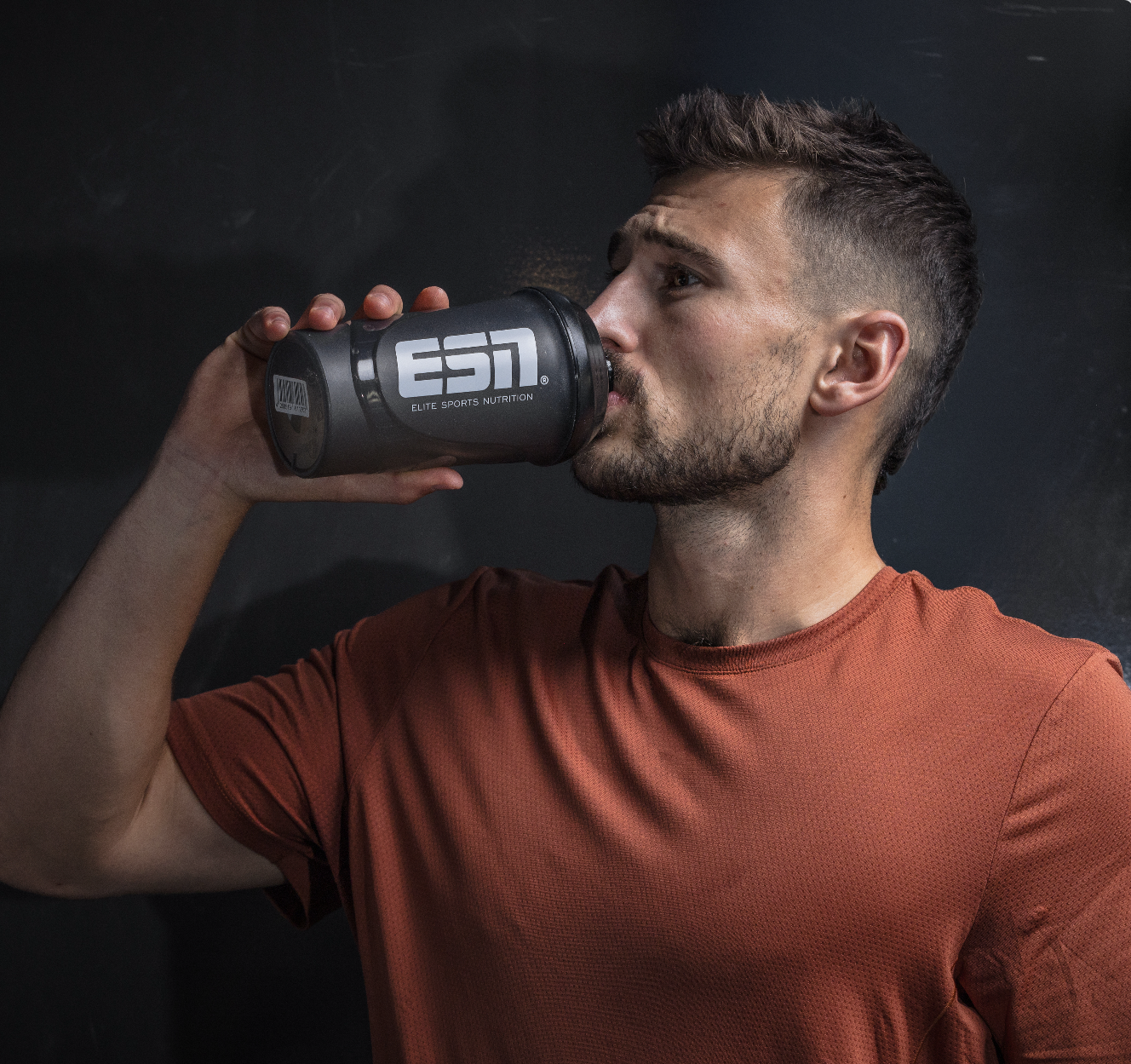Creatine – our must-have supplement
Creatine is our must-have supplement. And we are not alone in this, because the International Society of Sports Nutrition, or ISSN for short, has also confirmed it as one of the most important sports supplements.² But why? And what is it actually? Here we have compiled all the information about creatine for you.
What is creatine?
Creatine, creatine or creatine, whatever you want to call it, is an organic acid, more precisely a carbon-nitrogen compound. Our body produces it in organs such as the liver, pancreas and kidneys. Creatine is made up of three amino acids: glycine, arginine and methionine. During creatine synthesis, these three amino acids combine their specific chemical structures to form creatine. These amino acids are the building blocks of proteins and play a crucial role in various biological processes in the body. The unique composition of creatine can act as an important source of energy for muscle cells, especially during short, intense exertion.
Risk of confusion: Creatine and creatinine
Creatine is not to be confused with creatinine: While creatine plays an important role in producing and providing energy for short, high-intensity physical activity, creatinine is a waste product. It is created when creatine is used in muscle cells to produce energy. The concentration of creatinine in the blood and urine is an indicator of kidney function, as it is continuously filtered by the kidneys and excreted in the urine. Measuring creatinine levels helps doctors, for example, to evaluate kidney function and diagnose possible kidney diseases.
What forms of creatine are there?
Creatine is the same as creatine? Wrong, there are many different forms of creatine. Let's take a closer look at the most common ones:
Creatine Monohydrate: This is the most widespread and best researched form. Creatine Monohydrate occurs in small amounts in certain foods and is synthesized in the body from amino acids. It is characterized by the binding of a molecule of water (hydrate) to a molecule of creatine.
Creatine Ethyl Ester: A form in which creatine is bound to an ethyl ester, which is designed for better absorption by the muscles. However, its effectiveness compared to monohydrate is controversial.
Creatine hydrochloride (HCL): A form that is better than creatine monohydrate is supposed to be water-soluble, but contains less pure creatine.
Creatine (Kre-Alkalyn): This is a patented form of creatine that has been specifically designed to increase the pH of the creatine, making it more stable. This stability is designed to prevent the creatine from breaking down into creatinine before it gets to the muscles. The idea behind Kre-Alkalyn is that by increasing the pH, it will allow the creatine to be absorbed more efficiently into the muscle cells, which could increase effectiveness without the need for a loading phase and reduce potential gastrointestinal discomfort.
Creatine effect: What does creatine do in the body?
In muscles, creatine is present primarily as creatine phosphate, a form that is crucial for the production of adenosine triphosphate (ATP), the primary energy source of muscles.
When muscles work, ATP is broken down into adenosine diphosphate (ADP), releasing energy. Creatine then donates a phosphate group to convert ADP back into ATP, increasing the energy supply for further muscle work. Muscle performance is therefore directly dependent on the availability of ATP: the fuller the creatine stores in the muscle cells are, the better the performance.
Enough theory, what this means in concrete terms is that creatine can make you run further, lift heavier or do more reps – in other words, you have more power.²
To ensure that your creatine levels remain optimal, you can replenish your stores with special supplements, such as our Creatine powder. High quality, microfine and tasteless - ideal for stirring into your drinks.
Did you know: Creatine is one of the most widely used and best-researched nutritional supplements in sports.
Creatine Effects for Athletes
Anyone who lifts weights in the gym will sooner or later hear about creatine. No wonder, because as we already know, it can help you improve your performance,
Build muscles more effectively and even look more athletic: Creatine is stored in the muscle cells and binds water there, making the muscles look fuller and more voluminous.
Furthermore, creatine can have a positive effect on regeneration: A study with endurance athletes shows that taking creatine can demonstrably reduce cell damage and inflammation.¹
Studies also suggest that creatine can improve attention span, IQ and working memory.²
Keep in mind: Creatine is not a substitute for a conscious and balanced diet. Essential nutrients and progressive training form the basis for your best performance.
Who can benefit from targeted intake of creatine?
As we mentioned at the beginning, our body can produce creatine itself. However, a targeted intake of creatine can still be interesting for many people, not just athletes:
Strength training: When lifting weights and bodybuilding, athletes can benefit from taking creatine, which can increase strength and performance during short, intense exertion and thus support muscle building.¹
Sprint: Athletes who focus on short, explosive sports such as sprints may experience improved performance due to the rapid ATP regeneration that creatine supports.³
Team sports: Athletes who participate in sports such as soccer, basketball, hockey and similar activities that require fast sprints and explosive movements can also benefit from the energy-boosting effects of creatine.
Endurance athletes: Although creatine is primarily known for its benefits in short, intense exercise, there is evidence that it may also help endurance athletes by improving recovery and supporting exercise performance.³
Older adults: Studies suggest that creatine may improve muscle strength and functional performance in older adults, which is important for maintaining mobility and reducing the risk of falls and injuries.⁵
Vegetarians & vegans: Since creatine is found primarily in meat and fish, individuals who avoid these food sources may have lower creatine stores and thus benefit more from supplementation.
For cognitive function: Some research shows that creatine may also improve brain function and contribute to mental fatigue, which could make it a useful supplement in mentally demanding jobs.⁴
Good to know: The effect of creatine is individual and can vary from person to person, because every body is and functions differently. You can find more information on this in our blog post on the topic Creatine monohydrate effect.
Which foods contain creatine?
Creatine is found, albeit in small amounts, in some foods, mainly in animal products:
Red meat: Beef and lamb are good sources of creatine. The creatine content can vary depending on the cut and method of preparation.
Poultry: Chicken and turkey also contain creatine, although in smaller amounts than red meat.
Fish: Fish such as tuna, salmon and herring are particularly rich in creatine.
Pork: Pork is also a source of creatine, with levels similar to those found in beef and poultry.
Please note that the exact amount of creatine in these foods may vary.
How do I take creatine?
That depends entirely on the creatine supplement. We recommend that you read the manufacturer's consumption recommendations carefully and follow them.
As an example, you can find the recommended dosage of our creatine products here:
With our Ultrapure Creatine, you mix 3.5 g of powder into 100 ml of water or the drink of your choice and drink it daily. Creatine capsules you take one capsule every day.
Are you looking for all-in-one support? Found it: Our Daily contains creatine, collagen peptides, L-glutamine and L-leucine - everything you need for your performance.
Good to know: When taking creatine, make sure you provide your body with enough fluids. As we know, a lot of water is stored in the muscle cells and is therefore not available for other processes.
And when do I take creatine?
Morning, noon, evening, before or after exercise – when is the optimal time for creatine?
Opinions vary widely on this, as you will soon see, but it seems that the timing of intake may not be as important as the regularity of supplementation.
After training: Some studies and experts recommend taking creatine immediately after training, as this is when muscles are most receptive to nutrients. The theory is that muscles are more efficient at absorbing and storing creatine during this phase, which could promote recovery and growth.
Before the training: Others argue that taking creatine before exercise could improve performance during the workout by increasing the availability of ATP, the muscles' energy source.
At a meal: Some experts recommend taking creatine with a meal, particularly carbohydrates and possibly protein, as this may increase insulin secretion and improve creatine uptake into muscles.
At any time: Much research suggests that the most important factor in creatine's effectiveness is daily supplementation over a long period of time, regardless of the specific time of intake. This means that regularly replenishing the body's creatine stores is ultimately more important than the exact time of intake.
The ideal time to take creatine may vary based on personal preference, daily schedule, and how your body responds to creatine. The most important thing is to find a routine that works for you and that you can stick to consistently.
What are the side effects of taking creatine?
Creatine is one of the most well-researched supplements and is generally considered safe for short- and long-term use in healthy adults. However, as with any supplement, some people may experience side effects. The most commonly reported side effects include:
Water retention: One of the most well-known side effects is increased water retention in the muscle cells. This can lead to rapid weight gain, but this is primarily due to the increase in the water content in the body.
Gastrointestinal complaints: Some report gastrointestinal discomfort such as cramps, nausea or diarrhea after taking creatine, especially when taken on an empty stomach or in high doses.
Muscle cramps and dehydration: There are reports indicating a possible increase in muscle cramps and the risk of dehydration, although scientific studies do not consistently confirm these effects.
Kidney stress: There have been concerns about the effects of creatine on kidney function, particularly with long-term use or in people with pre-existing kidney problems. However, the majority of research suggests that creatine has no negative effects on the kidneys in healthy adults.
Most people can take creatine without significant side effects. We recommend that you stick to the recommended dosage and drink plenty of water.
If you are unsure or are taking medication, we also recommend that you consult a doctor before taking creatine.
Sources:
¹ Creatine increases physical performance during explosive strength training as part of short-term intense physical activity – with a daily intake of 3 g.
² https://pubmed.ncbi.nlm.nih.gov/28615996/
³ https://www.sciencedirect.com/science/article/abs/pii/S0024320504005211
⁴ https://pubmed.ncbi.nlm.nih.gov/19773644/
⁵ Implementing Regulation (EU) 2017/672











